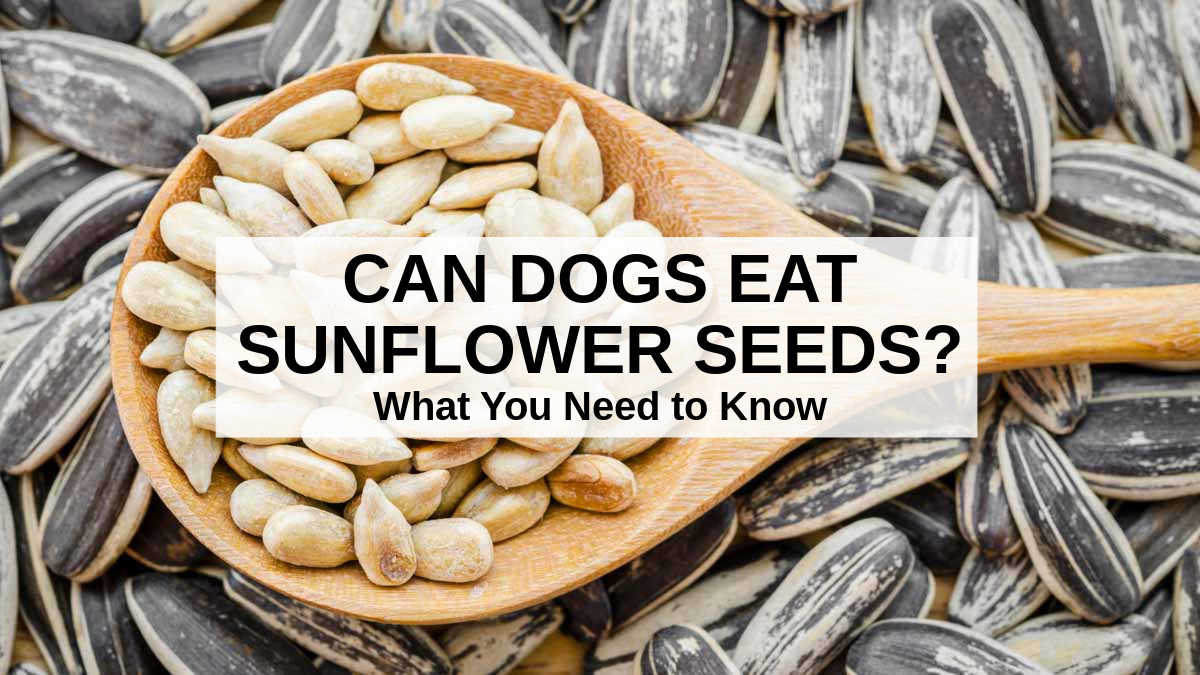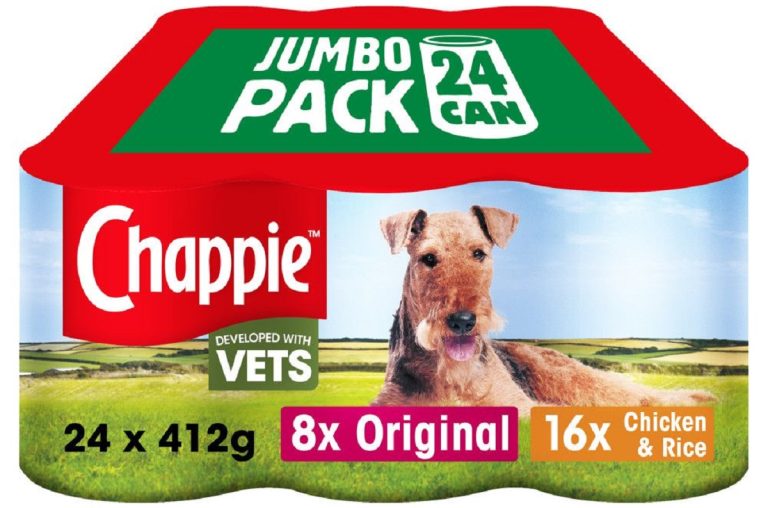Can Dogs Eat Sunflower Oil?
Yes, dogs can eat sunflower oil. This oil is a healthy fat for dogs and can help improve their coat and skin health. If you’re looking for a healthy and natural oil to add to your dog’s diet, sunflower oil is a great option!
Sunflower oil is packed with nutrients that can benefit your pup’s health in many ways. For example, it is a good source of omega-6 fatty acids, which are important for maintaining a healthy coat and skin. It also contains vitamin E, an antioxidant that can help protect your dog’s cells from damage.
Plus, the linoleic acid in sunflower oil can help keep your dog’s immune system strong. Adding sunflower oil to your dog’s food or giving it as a supplement is an easy way to give them a little extra boost of nutrition. Just be sure to talk to your veterinarian first to make sure it’s the right choice for your furry friend.
Is Sunflower Oil Good for Pets?
Sunflower oil is not only good for pets but also great for their coat and skin. This natural oil has many benefits that can help keep your pet healthy and looking their best. One of the main benefits of sunflower oil is that it is rich in essential fatty acids. These acids are important for maintaining the health of your pet’s coat and skin.
They can also help to reduce inflammation and promote healing. Sunflower oil is also a natural antioxidant, which can help to protect your pet’s cells from damage. Another benefit of sunflower oil is that it can help to improve circulation.
This can make your pet’s fur look shiny and lustrous. It can also help to increase oxygenation to the tissues, which can aid in healing wounds and injuries. Sunflower oil is safe for most pets, but as with any new food or supplement, it’s always best to introduce it slowly into their diet.
Benefits of Sunflower Oil for Dogs
Sunflower oil can have some potential benefits for dogs when used in moderation and as part of a balanced diet. Here are some of the potential benefits for dogs:
Healthy Coat and Skin: Sunflower oil is a source of essential fatty acids, particularly linoleic acid, which can help promote a healthy coat and skin in dogs. These fatty acids play a role in maintaining the skin’s integrity and can improve the shine and overall health of the dog’s coat.
Source of Omega-6 Fatty Acids: Sunflower oil is rich in omega-6 fatty acids, which are important for maintaining the immune system and supporting various bodily functions. Omega-6 fatty acids are also essential for cell development and can help reduce inflammation in the body.
Joint Health: The anti-inflammatory properties of omega-6 fatty acids found in sunflower oil may help support joint health in dogs. This can be beneficial for both growing puppies and aging dogs with joint issues.
Digestive Health: A small amount of sunflower oil in a dog’s diet can help improve digestion and reduce constipation. It may also be beneficial for dogs with certain gastrointestinal issues.
Source of Energy: Sunflower oil is a calorie-dense source of energy. Including it in a dog’s diet can be useful for active or working dogs that require extra energy.
Enhancing Palatability: Sunflower oil can make a dog’s food more palatable, which may be helpful for dogs that are picky eaters or have a reduced appetite.
It’s important to note that while sunflower oil can provide these potential benefits, it should be used in moderation and as part of a balanced diet. Excessive consumption of any oil, including sunflower oil, can lead to obesity and other health issues.
How to Serve Sunflower Oil to Dogs Safely?
Serving sunflower oil to dogs can be done safely when done in moderation and with care. Here are some steps to safely serve sunflower oil to your dog:
Choose High-Quality Sunflower Oil: Opt for high-quality sunflower oil without additives, preservatives, or flavorings. Extra virgin sunflower oil is a good choice.
Determine the Appropriate Amount: The recommended dosage of sunflower oil for dogs can vary based on the dog’s size and individual needs. Generally, you can start with a small amount, such as 1/4 teaspoon to 1 teaspoon of sunflower oil per 10 pounds of body weight, but it’s best to follow your veterinarian’s recommendations.
Incorporate into Meals: You can mix the appropriate amount of sunflower oil into your dog’s regular food. Stir it well to ensure even distribution.
Monitor Your Dog: After adding sunflower oil to your dog’s diet, monitor their overall health and well-being. Look for any signs of digestive upset, such as diarrhea, and watch for improvements in their coat and skin condition.
Use in Moderation: It’s crucial to use sunflower oil in moderation. Too much oil can lead to excessive calorie intake, weight gain, or digestive issues.
Storage: Store the sunflower oil in a cool, dark place to prevent it from going rancid. Always check the oil’s expiration date and ensure it remains fresh.
Avoid Flavored or Seasoned Oils: Stick to plain sunflower oil and avoid any flavored or seasoned varieties, as these may contain additives that are not suitable for dogs.
Consult with Your Veterinarian: Before adding any new food or supplement to your dog’s diet, it’s essential to consult with your veterinarian. They can provide guidance on the appropriate type and amount of sunflower oil for your dog’s specific needs.
Remember that while sunflower oil can offer some potential benefits, it should not replace your dog’s regular balanced dog food. If the dog has any underlying health conditions or dietary restrictions, your vet can provide personalized guidance on using sunflower oil safely and effectively.
What Oils are Safe for Dogs to Eat?
Several oils are considered safe for dogs to consume in moderation as part of a balanced diet. These oils can provide various health benefits for dogs. Here are some oils that are generally safe for dogs:
Olive Oil: Olive oil is rich in monounsaturated fats and antioxidants, which can be beneficial for dogs’ overall health. It may help improve coat and skin health, reduce inflammation, and support the immune system.
Coconut Oil: Coconut oil contains medium-chain triglycerides (MCTs) and has antibacterial and antifungal properties. It can be beneficial for digestive health, skin conditions, and may provide a source of quick energy.
Fish Oil: Fish oil, particularly those rich in omega-3 fatty acids, can support heart health, joint health, and reduce inflammation. It’s often used to enhance the coat and skin of dogs.
Flaxseed Oil: Flaxseed oil is a plant-based source of omega-3 fatty acids, which can be beneficial for the skin, coat, and heart health in dogs.
Sunflower Oil: As mentioned earlier, sunflower oil, which is rich in omega-6 fatty acids, can be used in moderation to support coat and skin health, joint health, and provide a source of energy.
Safflower Oil: Safflower oil is another source of omega-6 fatty acids and can be used in moderation for similar benefits as sunflower oil.
When incorporating oils into your dog’s diet, it’s essential to do so in moderation and consult with your veterinarian for guidance on the appropriate type and dosage. The specific benefits and dosage may vary depending on your dog’s size, breed, and health status.
Additionally, be cautious when introducing any new food or supplement, as individual dogs may have sensitivities or allergies. It’s also important to choose high-quality, pure oils without additives or preservatives.
Is Sunflower Ok for Dogs to Eat?
Sunflower seeds and sunflower oil are generally safe for dogs to eat in moderation. They can even provide some health benefits when included as part of a balanced diet. Here are a few considerations:
Sunflower Seeds: You can feed your dog unsalted and unshelled sunflower seeds as an occasional treat. They are a good source of protein, healthy fats, fiber, and various vitamins and minerals, including vitamin E and selenium. However, they are calorie-dense, so it’s essential to feed them in moderation to prevent weight gain. Additionally, be cautious with the shells, as they can be hard and difficult to digest. Smaller dogs, in particular, might have trouble with the shells.
Sunflower Oil: Sunflower oil is another option and can be added in small amounts to your dog’s food. It contains omega-6 fatty acids, which can support coat and skin health, and it can also provide a source of energy. However, like all oils, it’s calorie-dense, so it should be used sparingly to avoid excessive calorie intake and weight gain. Additionally, always choose high-quality, pure sunflower oil without additives or preservatives.
As with any dietary addition, it’s important to feed sunflower seeds and sunflower oil in moderation. An excessive amount of any treat or ingredient can lead to digestive upset and obesity. Also, consider your dog’s individual needs and any dietary restrictions, as some dogs may have allergies or sensitivities to certain foods.
Can Dogs Have Olive Oil?
Yes, dogs can have olive oil in moderation, and it can offer some health benefits. Olive oil is a source of healthy monounsaturated fats and is rich in antioxidants. Here are some potential benefits of giving olive oil to dogs:
Coat and Skin Health: The healthy fats in olive oil can help improve the condition of a dog’s coat and skin. It may reduce dryness, itching, and flakiness, promoting a shinier and healthier coat.
Digestive Health: Olive oil can be beneficial for dogs with digestive issues. A small amount of olive oil may help promote regular bowel movements and alleviate constipation. It can also aid in the absorption of fat-soluble vitamins.
Anti-Inflammatory Properties: Olive oil contains compounds with anti-inflammatory properties, which may benefit dogs with conditions like arthritis or other inflammatory disorders.
Antioxidants: The antioxidants in olive oil, such as vitamin E, can help combat oxidative stress and support a dog’s immune system.
When giving your dog olive oil, it’s important to do so in moderation. Too much fat in a dog’s diet can lead to weight gain and digestive issues. The recommended dosage typically ranges from about 1/4 teaspoon to 1 teaspoon of olive oil per 10 pounds of body weight, but this can vary based on the dog’s individual needs and size.
Can Dogs Have Sunflower Oil Tuna?
If you’re like most dog parents, you love finding new and interesting ways to keep your furry friend healthy and happy. So, when you stumble across something like sunflower oil tuna for dogs, it’s only natural to want to learn more about it!
Here’s what you need to know about sunflower oil tuna for dogs: it can be a healthy addition to their diet, providing essential fatty acids that can help keep their skin and coat healthy. However, it’s important to talk to your vet before making any changes to your dog’s diet, as some oils can cause gastrointestinal upset.
If you decide that sunflower oil tuna is the right choice for your pup, look for brands that are specifically formulated for dogs and use only high-quality ingredients. And as always, give them plenty of fresh water to drink along with their meal!
Are Sunflowers Toxic to Dogs?
Sunflowers themselves are generally not considered toxic to dogs. In fact, the seeds of the sunflower are often used as ingredients in commercial dog foods and treats. Sunflower seeds are a good source of protein and healthy fats and can be part of a balanced diet for dogs.
While the seeds themselves are not toxic, it’s essential to be mindful of the potential choking hazard posed by the hard shells and to ensure that the seeds you offer your dog are plain, unsalted, and given in moderation. If you have any concerns or questions about sunflower seeds or any other food items in your dog’s diet, consult with your veterinarian for guidance.
Conclusion
The short answer is yes, dogs can eat sunflower oil. However, it’s important to understand that not all oils are created equal. Just like with anything else, moderation is key when it comes to feeding your dog sunflower oil. Sunflower oil is high in omega-6 fatty acids, which can be beneficial for a dog’s coat and skin.
It can also help improve joint health and reduce inflammation. When used in moderation, sunflower oil can be a healthy addition to your dog’s diet. However, it’s important to remember that too much of anything is never a good thing. Dogs who consume too much sunflower oil may experience digestive issues such as diarrhea or vomiting.
If you’re going to add sunflower oil to your dog’s diet, start with small amounts and increase gradually over time. This will help your dog adjust and avoid any stomach upset.




